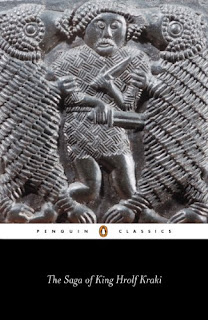I
have decided to try an Author Spotlight to draw attention to authors
who I think are worth your time and that some people might not know
about. I could think of no better author to start this off with than
Rosemary Sutcliff.
For those of you who have not read Sutcliff, you are missing out on a rare treat. She is, to my mind, one of the most underrated writers of the 20th Century.
For those of you who have not read Sutcliff, you are missing out on a rare treat. She is, to my mind, one of the most underrated writers of the 20th Century.
She wrote primarily historical
fiction, mainly focusing on early Britain and Saxon times, though she branched
out to Greece with Black Ships Before Troy, as well as the Vikings in
several other works. Even if you are not a huge fan of historical fiction,
those of you who want to be writers should still read her for the mastery she
displays in the art of writing.
Sutcliff does two things better than
any writer I have read; she creates poignant sense of atmosphere and she tells
deep, complex stories in a compact, straightforward style.
I am still trying to understand
exactly how Sutcliff is able to make her settings so vivid and complete in my
mind, but I think part of it comes from her deep understanding of them. She had
a well-developed picture of the world in which her characters lived, something
I think young writers can hurry through. As a writer, I believe the words on
the paper should be the tip of the iceberg you have imagined and thought about.
Simply by seeing that bit of ice peeking over the waves, we can sense the
vastness of what lies beneath. If you only imagine enough to fill in your
pages, it will seem flat and cheap without you really being able to tell what
the issue is.
 The second thing I love is that Sutcliff’s
writing is the definition of tight and compact. Mark of the Horse Lords
is a prime example, it is a short (less than three hundred pages) novel that
covers over a year of complex action in depth and detail with complex and well
developed characters. Yet Sutcliff tells only those scenes that directly move forward
the story. I was stunned when she skipped over what I thought would be the pivotal
moment in the book, preferring instead to relay the aftermath. Looking back I
realized, the aftermath was what mattered, she cut at least twenty pages of
action out of the story and only left in what was important. It
is a good lesson for some of us writers who feel the need to include
every step from beginning to end. Some things can be told in brief, in a
flashback, or left out entirely. Sutcliff did this masterfully.
The second thing I love is that Sutcliff’s
writing is the definition of tight and compact. Mark of the Horse Lords
is a prime example, it is a short (less than three hundred pages) novel that
covers over a year of complex action in depth and detail with complex and well
developed characters. Yet Sutcliff tells only those scenes that directly move forward
the story. I was stunned when she skipped over what I thought would be the pivotal
moment in the book, preferring instead to relay the aftermath. Looking back I
realized, the aftermath was what mattered, she cut at least twenty pages of
action out of the story and only left in what was important. It
is a good lesson for some of us writers who feel the need to include
every step from beginning to end. Some things can be told in brief, in a
flashback, or left out entirely. Sutcliff did this masterfully. If you're looking to get started on Sutcliff, I recommend starting with her Roman Britain Trilogy, Eagle of the Ninth, Silver Branch, and Lantern Bearers.
These are not only some of her best work, but they should be relatively
easy to find. You can find many of her books on Amazon here, and some of her books, such as Frontier Wolf (If
you are in any leadership position you should read this book) are
difficult to find other than used outside of Kindle. You can also
bookmark her works on Goodreads to
get to later, and you'll want to. Her works are numerous and well worth
reading, and you don't want to do what I did and find yourself
accidentally starting with the middle book in a series.
If you're looking to get started on Sutcliff, I recommend starting with her Roman Britain Trilogy, Eagle of the Ninth, Silver Branch, and Lantern Bearers.
These are not only some of her best work, but they should be relatively
easy to find. You can find many of her books on Amazon here, and some of her books, such as Frontier Wolf (If
you are in any leadership position you should read this book) are
difficult to find other than used outside of Kindle. You can also
bookmark her works on Goodreads to
get to later, and you'll want to. Her works are numerous and well worth
reading, and you don't want to do what I did and find yourself
accidentally starting with the middle book in a series. I am currently working to outline the second book in her Eagle Trilogy, Silver Branch, part of trying to study how she wrote and specifically how she structured her novels. I'm hoping that once I have a good start on it, I can make it publicly available and maybe get some of your thoughts on it, both my outline and Sutcliff's writing, so stay tuned for that.
Who are some of your favorite under appreciated authors? Hopefully I can learn about a few hidden gems from you as well, and perhaps I can focus on them for a future Author Spotlight.


